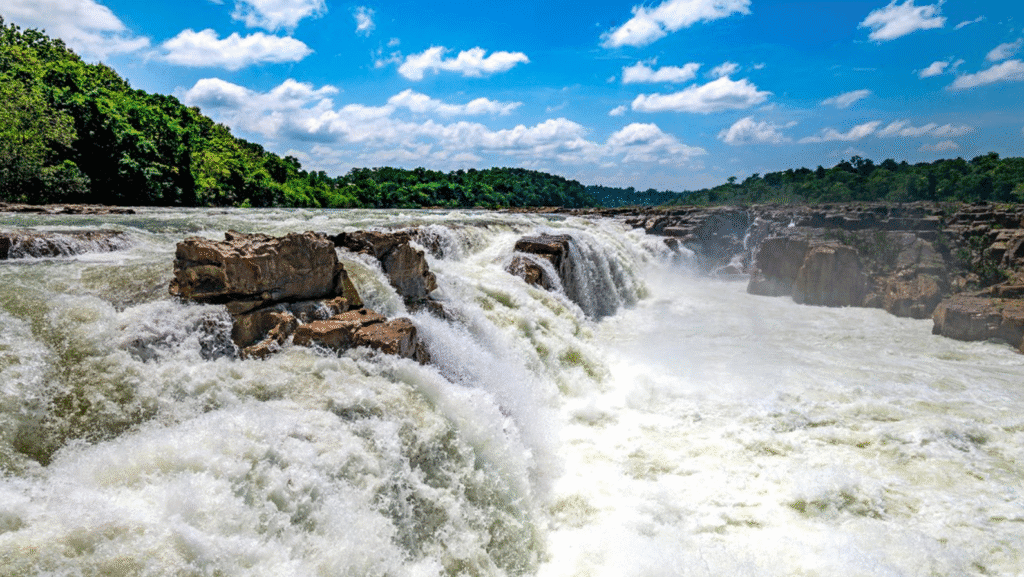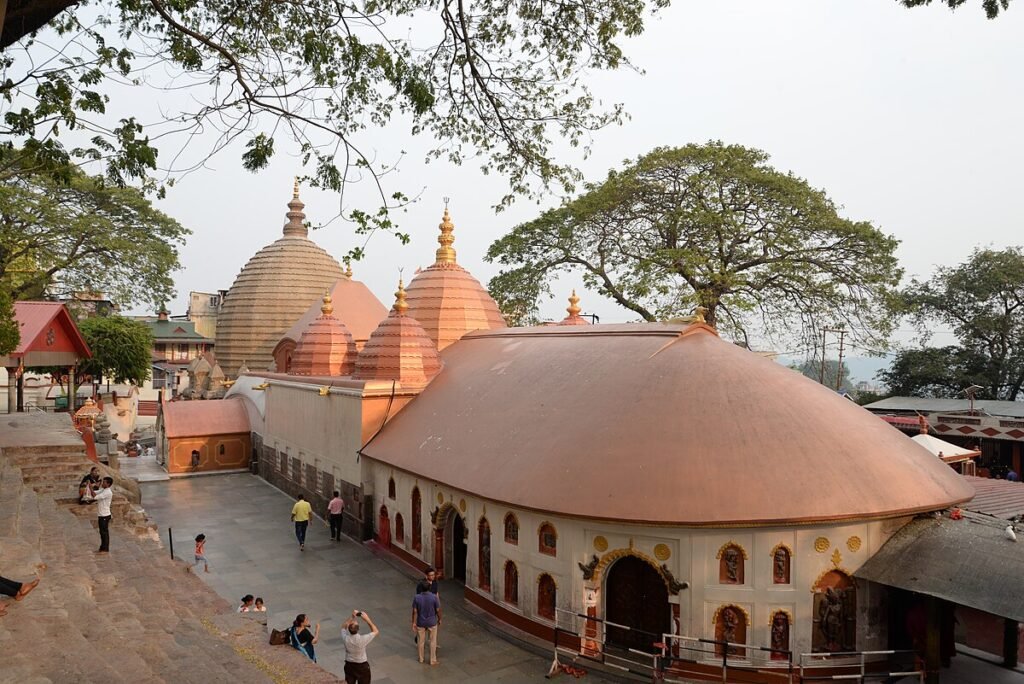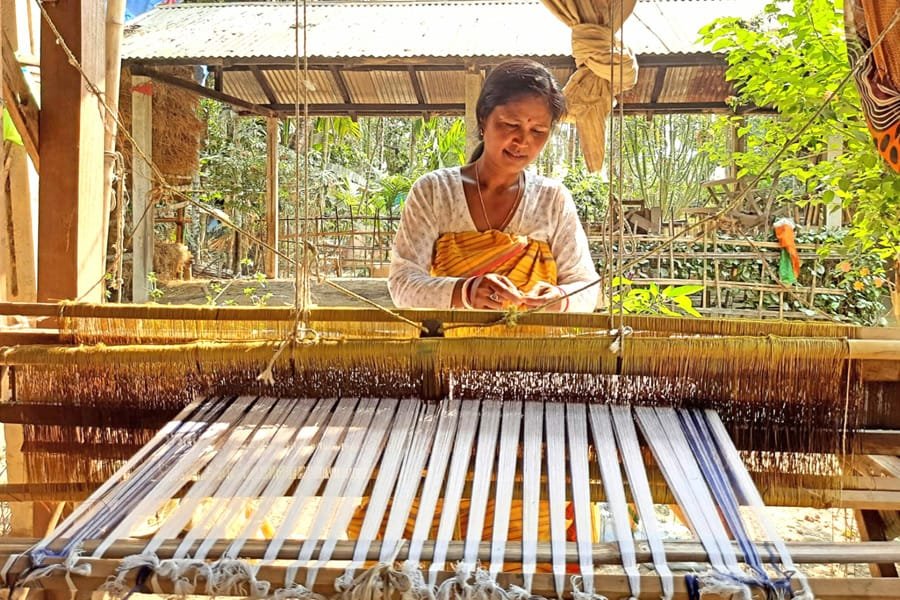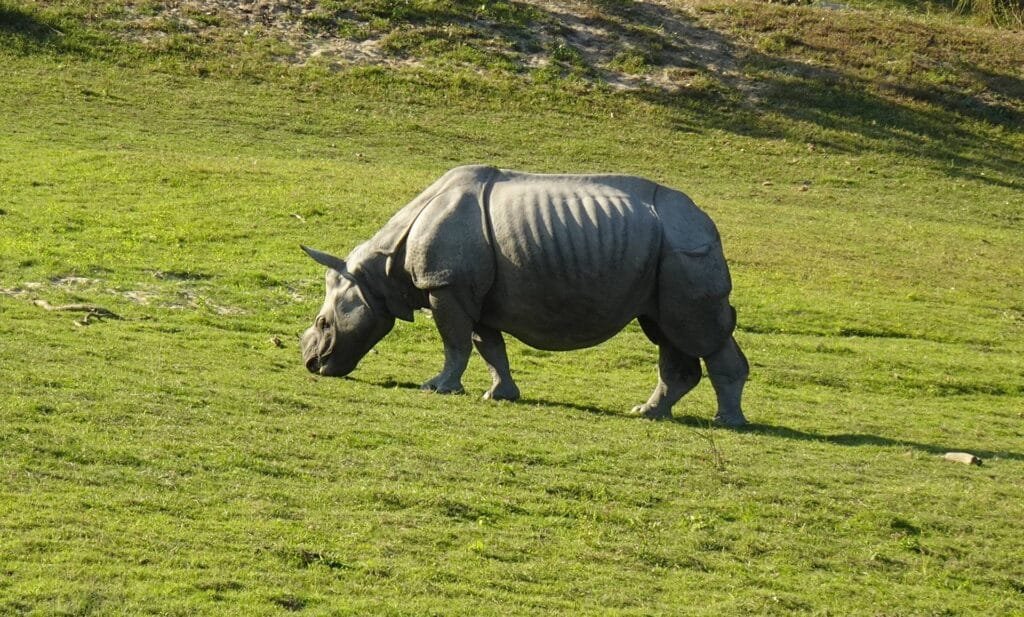Assam is a land where serenity and culture flow together like the gentle currents of the Brahmaputra. Beyond its famed tea gardens and rhino sanctuaries, the state unfolds a world of Assam Hidden Gems that capture its pure essence. Misty mornings in Haflong reveal rolling blue hills and bamboo groves, while Majuli Island, the spiritual heart of Assam, enchants visitors with ancient Satras, handwoven masks, and soulful Bihu performances.
In Sualkuchi, looms sing the rhythm of silk weaving, and at Chandubi Lake, reflections of forests dance on still waters. Evenings glow with oil lamps during traditional Namghars, where hymns echo across the valley. Assam’s beauty lies not only in its landscapes but also in the warmth, artistry, and living traditions that make it truly timeless.
Recommended Top 9 Arunachal Pradesh Hidden Gems: From Ziro Valley to Tawang and Beyond
1. Nilachal Hills
Perched on the western edge of Guwahati, the Nilachal Hills are among the most captivating Assam Hidden Gems, often overshadowed by the fame of the Kamakhya Temple resting on its slopes. Few visitors venture to the very top, where a breathtaking 360-degree panorama of the Guwahati valley unfolds—golden sunsets over the Brahmaputra and twinkling city lights that seem like stars fallen to earth. The tranquil breeze, mild weather, and spiritual calm make it a perfect escape from the city’s bustle. Easily accessible by personal or rented vehicles, Nilachal Hills reward every climb with unforgettable views, especially at dusk when Guwahati glows like a celestial carpet—an enchanting scene that defines Assam’s quiet, unspoken beauty.
2. Haflong

Nestled in the heart of Dima Hasao district, Haflong—often called the Switzerland of the East—is one of the most breathtaking Assam Hidden Gems. As the state’s only hill station, it enchants visitors with rolling green hills, crystal-clear lakes, cascading waterfalls, and misty pine forests. At over 600 meters above sea level, Haflong offers a serene escape for nature lovers, trekkers, and camping enthusiasts. The picturesque Haflong Hill viewpoint unveils sweeping vistas of the surrounding valleys, perfect for sunrise picnics or quiet reflection. Easily accessible by train, bus, or taxi from Guwahati and Silchar, Haflong’s pleasant weather throughout the year makes it a timeless retreat for anyone seeking peace, beauty, and adventure in Assam’s highlands.
3. Majuli Island
Cradled in the mighty Brahmaputra, Majuli Island is the beating heart of Assam’s cultural and spiritual heritage. Recognized as the world’s largest river island, it radiates an aura of peace, creativity, and devotion. For centuries, it has been the center of the neo-Vaishnavite movement founded by Srimanta Sankardeva and Madhavdeva, where the Satras (monasteries) continue to preserve ancient art, literature, dance, and theatre. The island is also famed for its traditional mask-making, pottery, and boat craftsmanship, reflecting the artistry of its indigenous tribes—Mishing, Deori, and Sonowal Kachari. With its serene villages, vibrant festivals, and lush landscapes, Majuli offers travelers an intimate glimpse into Assam’s soulful rhythm, where spirituality, art, and nature exist in perfect harmony.
4. Panimur Waterfall

Tucked away in the lush forests of Karbi Anglong, Panimur Waterfall is a breathtaking natural wonder formed by the serene flow of the Kopili River. Often called a paradise on Earth, its crystal-clear waters shimmer in shades of turquoise and emerald, changing hues with the seasons. The site holds deep spiritual value for the Dimasa tribe, who take holy dips here during Magh Purnima. Surrounded by rocky cliffs and dense greenery, Panimur offers a peaceful escape for trekkers, photographers, and nature lovers alike. Located about 216 km from Guwahati, it remains one of Assam’s most captivating hidden treasures.
5. Pobitora Wildlife Sanctuary
Just 40 kilometers from Guwahati lies Pobitora Wildlife Sanctuary, a lesser-known haven for wildlife enthusiasts and often called the “Mini Kaziranga.” Spread across lush grasslands and wetlands, it is home to the iconic one-horned rhinoceros, along with wild buffaloes, leopards, and over 200 species of migratory and resident birds. What makes Pobitora unique is that wildlife can often be spotted even without entering the sanctuary—rhinos grazing peacefully, herds of buffaloes lounging in the mud, and vibrant flocks of birds soaring overhead. The drive through the inter-district Pobitora Road itself feels like a safari through nature’s gallery. Easily accessible by private vehicle from Guwahati, Pobitora offers an unforgettable glimpse of Assam’s untamed and tranquil wilderness.
6. Amsoi Forest and Shivakunda Waterfalls
Hidden deep within lush greenery, Amsoi Forest and Shivakunda Waterfalls remain one of Assam’s most secluded and enchanting natural escapes. About 80 kilometers from Guwahati, this untouched forest range is home to the Tiwa tribe, who live peacefully along its edges. A narrow mud road winds through dense foliage, leading to a serene clearing where a small bridge crosses a murmuring stream. Following the trail reveals an ancient Shiva temple, beside which the graceful Shivakunda Waterfall flows quietly into the forest below. The air here is filled with the soothing rhythm of falling water and birdsong. Though remote and unspoiled, Amsoi’s beauty rewards those who venture off the map—best reached by private or rented vehicle.
7. Umananda Island
Floating gracefully on the mighty Brahmaputra, Umananda Island—also known as Peacock Island—holds the unique distinction of being the smallest river island in the world. Just a short ferry ride from Guwahati, this tiny island blends natural charm with deep spiritual significance. At its heart stands an ancient Shiva temple, built during the Ahom dynasty, where the scent of incense mingles with the river breeze. The island’s serenity is often enhanced by the playful presence of Golden Langurs, a rare species native to Assam. Surrounded by glittering waters and distant hill views, Umananda offers a peaceful retreat.
8. Kamakhya Temple

Perched atop the sacred Nilachal Hill in Guwahati, the Kamakhya Temple stands as one of India’s most revered Shakti Peethas. Dedicated to Goddess Kamakhya, the temple attracts thousands of devotees and pilgrims each year, especially during the vibrant Ambubachi Mela. This unique festival celebrates the goddess’s annual cycle of fertility, symbolizing womanhood and creation. During this time, the temple’s sanctum remains closed, yet the surrounding complex comes alive with chants, rituals, and spiritual fervor.
9. Dibru Saikhowa National Park
Spread across the lush landscapes of Dibrugarh and Tinsukia, Dibru Saikhowa National Park is a paradise for wildlife lovers and birdwatchers. This pristine haven shelters diverse species, including Bengal tigers, sloth bears, Chinese pangolins, and the playful Hoolock gibbons. The park’s wetlands and evergreen forests also attract countless migratory and resident birds, making it a delight for photographers and nature enthusiasts. A boat safari through its winding channels offers unforgettable encounters with wildlife and the serene beauty of Assam’s untamed wilderness.
10. Sualkuchi

Located just a short drive from Guwahati, Sualkuchi—fondly known as the Silk Village of Assam—is a vibrant center of traditional handloom weaving. This picturesque town hums with the rhythmic clatter of thousands of looms, producing the world-famous Muga, Eri, and Pat silks. Almost every household here is involved in weaving, preserving age-old techniques passed down through generations. Visitors can watch skilled artisans craft elegant Mekhela Chadors, explore workshops, and learn about the intricate silk-making process. Rich in color, craftsmanship, and culture, Sualkuchi offers a fascinating glimpse into Assam’s timeless textile heritage.
11. Chandubi Lake
Located about 58 km from Guwahati, Chandubi Lake lies serenely at the foothills of the Garo Hills in Assam’s Kamrup district. Formed after the great earthquake of 1897, this natural lake was once a cluster of five hills that sank to create its tranquil waters. Surrounded by lush forests, quaint villages, and sprawling tea gardens, Chandubi is a perfect retreat for nature lovers. Visitors can enjoy boating, fishing, and birdwatching, especially during winter when migratory birds flock to its shores. The nearby Rabha tribal village offers insights into local traditions and hospitality. Every January, the Chandubi Festival celebrates regional culture with dance, music, and local cuisine, making this lakeside haven a vibrant escape.











